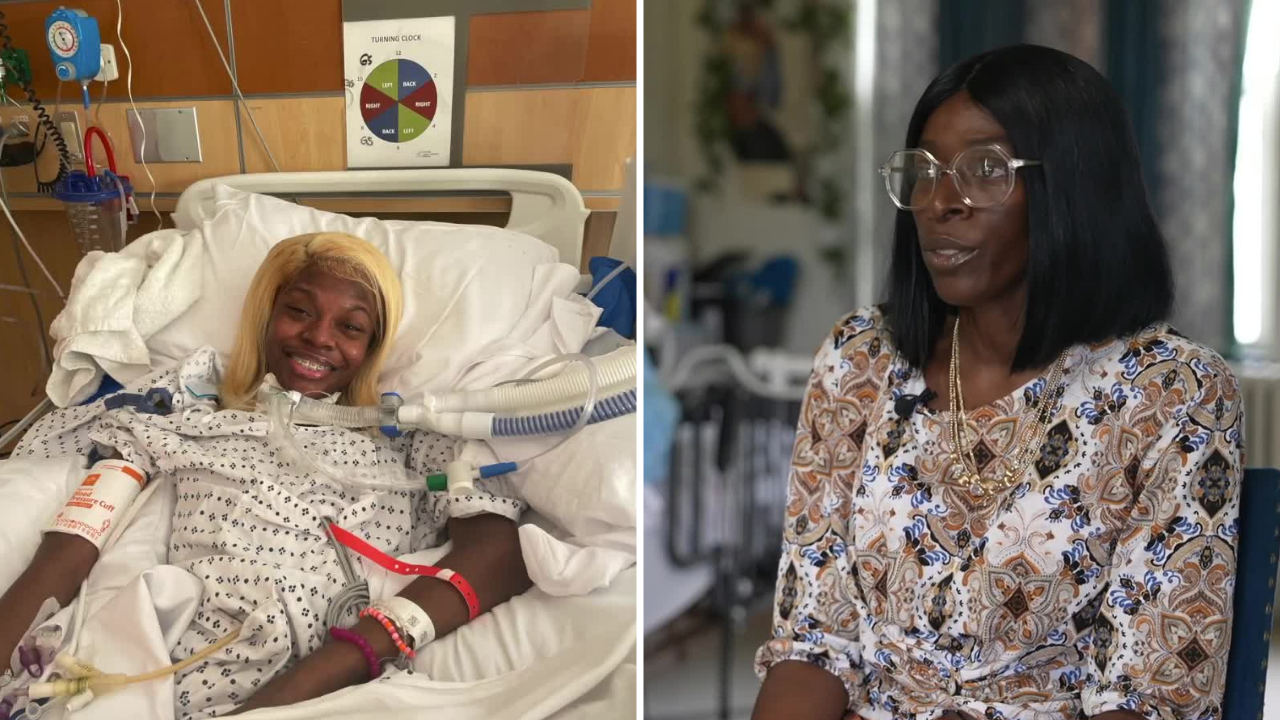RICHMOND, Va. — A Richmond public housing resident said her daughter's return home from the hospital remains in limbo after the housing authority denied a request for an accommodation that her healthcare provider said was necessary.
Sylvia Davis' Gilpin Court living room is currently overtaken with medical equipment as she waits for her 21-year-old daughter Makayla to come home from the hospital.
“The hospital tells her, ‘You’re going home, Makayla.’ They call me, and I come downstairs every single day and show her her stuff that’s here and let her know she’s coming home," Davis said.
After a car crash last year that resulted in critical injuries leaving her daughter paralyzed from the neck down, Davis said Makayla has been in and out of hospitals and rehabilitation facilities.
She finally had a discharge date of July 23, but that date came and went, and Makayla still sits in the hospital.
“They kept changing the discharge date, kept changing the discharge date, because we have never gotten a reasonable accommodation from RRHA," Davis said.
According to emails Davis shared with CBS 6 from her daughter's hospital registered nurse case manager, Makayla will be a "homebound tracheostomy patient requiring mechanical ventilation," and because of it, the discharge planner needed to ensure that the Richmond Redevelopment and Housing Authority (RRHA) can provide a backup power supply.
“Either a generator, so if we lose power, or a storm comes, it would be a backup source of power, or contact Dominion, so if we lose power, they know they have a certain amount of time to get it back on," Davis said.
In an email the hospital case manager sent to RRHA, she stated she initiated communications about the request on July 7 and sent multiple follow-ups after that. However, weeks later, RRHA still had not answered whether Makayla could return to the apartment on ventilator support.
"Given that initial contact was made on July 7th, could you please clarify why a confirmation on whether [Makayla] can return to the apartment on ventilator support could not be provided prior to today? Understanding this will assist us in addressing any barriers and planning appropriately for Makayla Baker’s safe discharge," the case manager wrote in an email dated July 22.
On July 25, two days after the original discharge date, Davis said she received notice from RRHA that it denied her reasonable accommodation request for a generator.
Citing the reason for the denial, the housing authority wrote that installing one in the unit would create a safety hazard.
“If it's gas powered, it would go outside," Davis said. "He’s going to say, 'a generator can’t go inside.' We never asked you to put a generator inside this house.”
A housing attorney with the Legal Aid Justice Center, Lauren King, said tenants in public housing have a lot of protections when it comes to reasonable accommodations requests. As for landlords, she said they can deny a request if it would cause an undue financial burden or if it would fundamentally alter the nature of operations.
When denying Davis' request, RRHA did not check the box for an undue financial burden or alteration to operations. Instead, RRHA checked an "other" box and cited "health and safety."
Generally speaking, King said state law requires these requests to be an "interactive process" between the landlord and tenant. She said that means a solutions-focused back-and-forth should be expected as opposed to blanket denials.
However, Davis said she received a "flat-out no" in her situation.
She felt the delays in evaluating her request have caused stress and uncertainty about how to move forward.
“It's unfair to her, it's unfair to me, it's unfair to the hospital," she said. "What if somebody is coming down that needs a medical emergency and Makayla's holding up a bed?"
Her message to the housing authority: “Sign the paper. Provide a generator. Get my baby home. Do the right thing.”
RRHA CEO Steven Nesmith told CBS 6, "Richmond Redevelopment and Housing Authority (RRHA) takes the health and well-being of our residents seriously."
“In response to a recent concern, we engaged in an interactive process with the resident and her medical provider, as outlined in our policies and in accordance with federal guidelines. While we are unable to discuss individual cases due to privacy laws, we remain committed to working collaboratively with residents and healthcare professionals to explore reasonable accommodation within the scope of our policies and legal responsibilities," Nesmith said.
CBS 6 is committed to sharing community voices on this important topic. Email your thoughts to the CBS 6 Newsroom.
📲: CONNECT WITH US
Blue Sky | Facebook | Instagram | X | Threads | TikTok | YouTube






